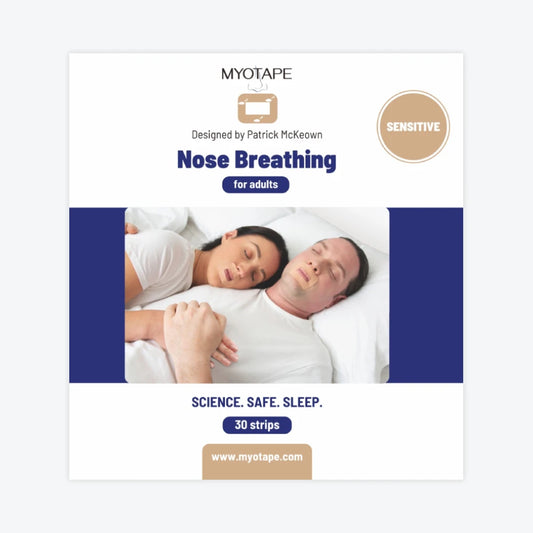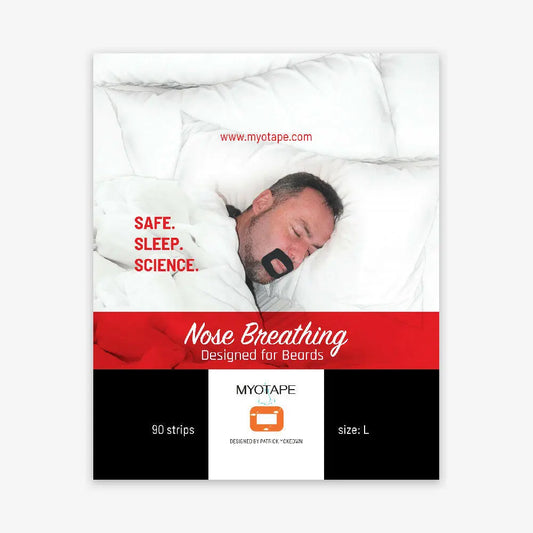When you think about breathing, you probably focus on getting enough air into your lungs. Yet, the way you breathe can affect more than just your breathing. Breathing through your mouth, especially at night, might cause dry mouth, which can lead to some surprising problems. Mouth breathing often strips away the essential layer of moisture provided by saliva, leaving your mouth dry and vulnerable.
This article will guide you through the critical role saliva plays in maintaining oral health and explore how mouth breathing leads to dry mouth, which can negatively affect not just your oral health, but beyond your mouth.
Key Takeaways
- Mouth breathing can lead to dry mouth, lacking protective saliva.
- Dry mouth can harm teeth, gums, and taste.
- Continuous dry mouth from mouth breathing impacts both oral and overall health.
Importance of Saliva in the Mouth
Saliva plays a crucial role in keeping your mouth healthy. It does more than just help with digestion. Here are some key benefits of saliva in the mouth:
- Moisturizes: Saliva keeps your mouth moist, making it easier to chew, swallow, and speak.
- Protects Teeth: It helps prevent tooth decay by washing away food particles and neutralizing acids produced by bacteria.
- Aids Digestion: Starts the breakdown of food, saliva contains enzymes that kick off the digestion process.
- Fights Infections: Saliva has antibacterial properties. It helps control harmful microorganisms in your mouth.
- Wound Healing: If you have cuts or sores in your mouth, saliva can help them heal faster due to its proteins and compounds that promote tissue repair.
Insufficient saliva, known as xerostomia, can lead to serious oral health issues. It highlights how vital saliva is to your overall well-being, influencing everything from tasting food to maintaining a healthy balance of bacteria.
If you experience problems like dry mouth or other changes in saliva production, it's important to consult a healthcare professional. They can help identify the cause and suggest treatments to protect your oral health.
What is Dry Mouth?
Dry mouth, also known as xerostomia, occurs when your mouth does not produce enough saliva. It can happen due to a variety of reasons and can lead to issues like difficulty speaking and swallowing.
Causes of Dry Mouth
Dry mouth can have many causes. Medications are one of the common culprits. Drugs for allergies, high blood pressure, and depression can reduce saliva production.
Additionally, medical treatments like chemotherapy and radiation targeting the head and neck influence salivary glands. CPAP usage can also lead to dry mouth, however, MyoTape is an effective way to stop CPAP dry mouth.
Dehydration can lead to a dry mouth even if you drink water. Although dehydration is a key factor, illnesses such as diabetes or conditions like Sjögren’s syndrome can also diminish saliva flow.
Lifestyle habits including smoking or mouth breathing contribute as well, causing surface dehydration when the mouth stays open for long periods. It's important to identify the cause to address treatment.
Symptoms of Dry Mouth
Experiencing dryness in your mouth, even after frequent hydration, is a strong indicator of xerostomia. This can lead to difficulty swallowing or speaking, and even a frequent, parched feeling. Additionally, you might feel a sticky sensation inside your mouth.
Another common sign is a taste alteration, where flavors may not seem as sharp or distinct as before. Oral health issues like an increase in cavities, periodontal diseases, or gum disease can often accompany dry mouth due to lack of saliva protecting the teeth. Sometimes, affected individuals may notice cracked lips or a sore throat, further emphasizing the need for proper examination and care.
The Relationship between Mouth Breathing and Dry Mouth
Mouth breathing can lead to a dry mouth due to several reasons. When you breathe through your mouth, you skip the natural humidifying process the nose provides. This can result in dryness inside the mouth, as the airflow directly affects moisture levels.
A common cause of mouth breathing is nasal congestion due to allergies, colds, or structural issues. When you're forced to breathe this way, the decreased saliva production contributes to dry mouth. Saliva is essential to maintaining oral health by controlling bacteria, washing away food, and neutralizing acids.
Dry mouth symptoms include a sticky feeling, frequent thirst, or a sore throat. You might also notice bad breath or a change in taste. These signs are often consistent in people who frequently breathe through their mouths.
The Oral Health Impacts of Dry Mouth
When you breathe through your mouth instead of your nose, your saliva production decreases, leading to a drier and more acidic environment in your mouth. This lack of moisture allows acid-producing bacteria to thrive, accelerating plaque and tartar buildup. Consequently, your teeth may lose essential minerals, increasing the risk of cavities.
Dry mouth is also linked to other oral issues such as bad breath. For younger individuals, mouth breathing can lead to halitosis, while in adults, it may be associated with health conditions like obesity and high blood pressure.
Even if you switch between mouth and nose breathing, problems can still occur. When your lips are apart more than usual, or your upper lip doesn’t cover your teeth well, plaque and gingivitis become more significant issues. This habit can also lead to crooked teeth and other alignment problems.
One of the primary consequences of mouth breathing is the increase in mouth acidity due to reduced saliva production. This reduction compromises saliva's buffering capacity, resulting in a higher likelihood of plaque and tartar buildup, oral thrush, and mineral loss from the tooth surface—all precursors to dental caries.
So, what are the possible risks of dry mouth from mouth breathing? Studies have shown a significant link between mouth breathing and halitosis in children. In adults, dry mouth, often a symptom of mouth breathing, has been associated with obesity, arterial hypertension, and hyperglycemia. Notably, mouth breathing doesn't have to be a constant habit for these problems to arise.
Research suggests that even mixed oronasal breathing (breathing from the nose and mouth) can be harmful, with one study describing it as "one of the most deleterious habits" in terms of malocclusion. Furthermore, increased lip separation or decreased upper lip coverage exacerbates issues like plaque and gingivitis.
What happens if your mouth is dry for too long? Prolonged dryness can lead to severe oral health issues, including chronic bad breath, increased dental decay, and gum disease. Identifying and addressing the underlying causes of dry mouth is crucial to maintaining optimal oral health.
Beyond the Mouth: The Wider Health Implications of Mouth Breathing
Mouth breathing has effects far beyond just oral health. It can lead to significant changes in facial growth, particularly in children. This happens because the structure of the nasal airway can be altered, leading to lifelong issues with breathing and related problems
As revealed in the experiments by Norwegian orthodontist Dr. Egil Harvold, childhood mouth breathing can result in irreversible changes to facial growth, negatively affecting the development of the nasal airway and potentially paving the way for a lifetime of breathing and associated health problems.
The consequences are broad, affecting various body systems. Dry mouth resulting from mouth breathing can contribute to cardiovascular disorders and disrupt sleep. Moreover, it might lead to physical pain and even affect functions such as posture and speech.
Children who breathe through their mouths at night may experience sleep disturbances, which can result in cognitive challenges. For example, these children might suffer from poor concentration or daytime sleepiness.
You may also see links between mouth breathing and conditions like atopic dermatitis and tonsillitis. Some individuals might even experience behavioral changes, such as increased anxiety and restlessness. In some cases, mouth breathing might be connected to speech disorders, driving further issues in communication. It's important to understand these potential outcomes to address and manage mouth breathing effectively.
From cardiovascular disorders and sleep disturbances to physical pain and even sexual dysfunction, the fallout from mouth breathing is broad and substantial. It can play a role in speech and postural disorders, sleep-disordered breathing leading to cognitive impairment in children, and it's been linked to conditions like atopic dermatitis and tonsillitis.
Furthermore, mouth breathers often display behavioral changes including poor concentration, daytime sleepiness, anxiety, and restlessness. Understanding these wider health implications is crucial for addressing and managing mouth breathing effectively.
Hence, it is imperative to switch from being a mouth breather to a nose breather so you can avoid these negative health implications.
How MyoTape Can Help You Overcome Mouth Breathing and Dry Mouth?
MyoTape offers a simple way to encourage nasal breathing, thus reducing mouth breathing and dry mouth. Our innovative mouth tape softly holding your lips together, it helps prevent mouth breathing, which often leads to issues like dry mouth. This method can be used both during sleep and physical activities, ensuring that you maintain a healthier breathing pattern. It trains the muscles around your mouth to keep your mouth close, which can help you fix super dry mouth in the long-term
Benefits of Using MyoTape:
- Promotes Nasal Breathing: Encourages you to breathe through your nose, which is better for filtering and humidifying the air you inhale.
- Reduces Dry Mouth: Helps decrease the occurrence of dry mouth by keeping your mouth closed and moisture levels stable.
- Suitable for Various Ages: Whether you need mouth tapes for adults or mouth tapes for kids, MyoTape is designed to cater to the needs of different age groups.
Ready to embrace the benefits of nasal breathing? Visit our products page to learn more about MyoTape and how it can transform your breathing habits and overall health. Step into a healthier future today - make mouth breathing a thing of the past.








